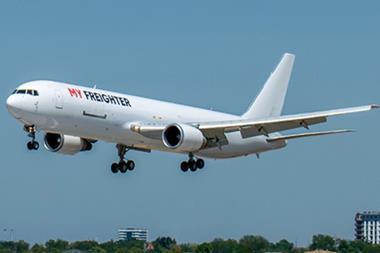THE SURPRISING and coincidental departures of two leading US airline cargo personalities has caused a few shockwaves.
The sudden exit of Robbie Anderson, president of United Cargo, and the unexpected announcement of the retirement of Tony Charaf, Delta’s cargo chief, make one wonder about the state of the US air cargo business and also about airline fortunes in general.
The two high-level departures come at a difficult time for the industry, a moment when stability is required, as cargo yields continue to drop through the fuselage floor, cargo departments are losing money and strong leadership is needed more than ever, especially as we stand at the threshold of e-freight and greater transparency and many other hi-tech-driven air cargo industry improvements.
Perhaps the biggest surprise is Delta’s decision to take its cargo business back to mummy, back to the comforting arms of its passenger business thereby, at a stroke, making cargo executives directly answerable to non-cargo people and confirming our fears that cargo really was always only a poor derivative of the matriarchal passenger business.
It feels a bit like someone is taking this industry back 10 or 20 years and that, despite appearances, cargo was never really able to escape the womb.
I wonder if the cause is directly related to the success of the Middle East carriers and the effect their gradual dominance is now having on rivals in all the big markets.
Unable to compete with the burgeoning networks, fleets and infrastructure investments of Emirates, Etihad and Qatar, for example, are other carriers in other parts of the world now contemplating withdrawing from the cargo fight altogether?
If so, who is next on the agenda? American Airlines?
Will Cathay and Singapore Airlines Cargo suddenly decide to return their freight divisions back to their passenger roots? How about IAG, or AF-KLM? Surely not Lufthansa Cargo . . .










